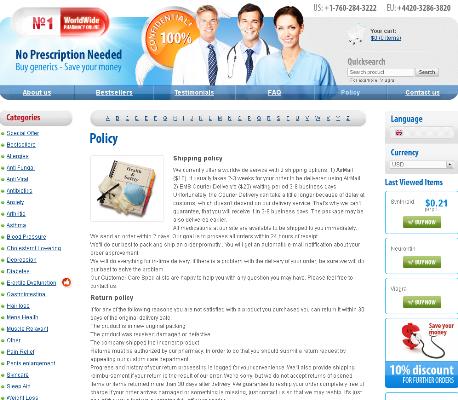| Royal City Drugs |
To Visit Online Pharmacy Click HERE ↓
Prednisolone and Children: Safety Concerns Explained
What Is Prednisolone and Why Is It Prescribed?
Prednisolone belongs to a group of medications called corticosteroids, which are designed to mimic hormones naturally made by our bodies. Doctors often prescribe it to children to help treat conditions involving inflammation, such as asthma, allergies, or autoimmune diseases. By calming the immune system, prednisolone can quickly relieve symptoms like swelling, redness, and discomfort. Families might feel anxious about the idea of steroids, but for many children, it plays a critical role in controlling sudden or severe health flare-ups.
| Condition | Why Prednisolone Is Used |
|---|---|
| Asthma | Reduces lung inflammation and wheezing |
| Allergic reactions | Calms immune response to allergens |
| Autoimmune disorders | Suppresses harmful immune activity |
Potential Short-term Side Effects in Children

Starting prednisolone often brings rapid relief from inflammation, but it can also trigger some noticeable reactions in children. Parents may observe increased appetite, mood swings, or trouble sleeping as early signs. These changes, while unsettling, are generally reversible once the medication is tapered off.
Other short-lived effects can include stomach irritation or mild headaches. Occasionally, children might experience elevated blood pressure or fluid retention. Close monitoring and open communication with your child’s doctor can help catch these symptoms early and provide peace of mind.
Each child responds to prednisolone differently, making it crucial to watch for any new or unusual behaviors and side effects. Promptly sharing these observations with healthcare providers ensures timely adjustments and safer treatment outcomes.
Risks of Long-term Prednisolone Use
For many families, prednisolone offers essential relief for chronic conditions like asthma or autoimmune disorders, but it’s important to balance its benefits against long-term implications. Over time, extended use may affect a child's immune system, making infections more likely and recovery slower. This can be particularly challenging during school years when exposure to germs is common.
Another area of concern is bone health. Prednisolone can decrease calcium absorption and slow bone growth, raising the risk for fractures. Parents might notice their child experiencing muscle weakness or feeling more tired than usual. Additionally, prolonged therapy can lead to hormonal imbalances, sometimes causing weight gain, mood changes, or issues with blood sugar regulation.
It’s crucial to work closely with your child’s doctor, who can monitor for complications and adjust treatment as needed.
How Prednisolone Affects Growth and Development

For many parents, the idea that a medicine like prednisolone could alter a child’s growth can be concerning. Prednisolone, especially when used for a long time or in high doses, may slow down bone growth and affect overall height. This effect is more likely when it’s taken frequently or for several months.
Doctors carefully consider the benefits and risks, aiming to use the lowest effective dose. Regular monitoring with pediatricians helps track any changes in growth patterns, which often return to normal after treatment ends.
Managing Side Effects: Tips for Parents
Parents can make a significant difference in their child’s experience with prednisolone by staying attentive to even subtle body changes. Keeping a daily symptom diary—tracking things like mood swings, appetite changes, and sleep patterns—can help distinguish normal adjustments from worrying side effects. It’s wise to stick closely to the dosing schedule and avoid abruptly stopping prednisolone, as this can complicate recovery.
Practical steps, such as offering healthy snacks to counter appetite increases or ensuring plenty of fluids, also ease some side effects. Always consult your healthcare provider before introducing any new food, supplement, or medication. Quick, open communication fosters a safer, more comfortable journey through treatment.
| Tip | Benefit |
|---|---|
| Track symptoms daily | Early identification of side effects |
| Stick to prescribed schedule | Prevents complications |
| Encourage healthy snacks | Manages appetite changes |
| Stay hydrated | Supports overall health |
When to Seek Medical Help Immediately
If a child develops severe allergic reactions such as trouble breathing, sudden swelling, or a rash while taking prednisolone, it’s critical to act fast and seek urgent medical attention. Unusual symptoms like persistent vomiting, high fever, severe abdominal pain, or unexplained weakness should not be ignored. Rapid mood changes or hallucinations, although rare, can also signal a serious concern.
Parents should also watch for signs of infection, as prednisolone can lower immunity—symptoms like continuous coughing, unexplained bruising, or sores that won’t heal require immediate review by a healthcare provider. When in doubt, it’s always safer to call your child’s doctor or visit the emergency room.






Email Us
Fill out all the fields below and press submit, a rep will contact you as soon as possible.

